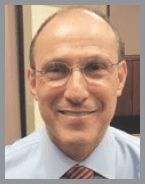Priming the Pump – UMass Medical School Partners with Baystate on Springfield Campus
Dr. John Schreiber has long observed a growing crisis of physician access across the region.
“There is definitely a shortage of physicians in Western Massachusetts, at two levels,” said Schreiber, chief physician executive for Baystate Health. “First is primary care; many patients in Western Mass. face long waiting lists to see a doctor. Plus, a lot of primary-care physicians are elderly and retiring out, and the pipeline of people coming to this area to replace them is pretty low. That’s a huge challenge. Then, there’s also a shortage of specialists, especially in the far western part of the state.”
So Schreiber is excited at the prospect of UMMS-Baystate Health, a campus of UMass Medical School expected to open in Springfield in the fall of 2017. The project is a collaboration between the medical school, UMass Amherst, and Baystate Health.
The partnership, which will be an expansion of the state’s only public medical school into Springfield and the first UMMS regional campus located in Western Mass., is intended to meet three goals: increasing access to students in Massachusetts seeking an affordable medical education, responding to the healthcare needs of the Commonwealth by increasing the number of Massachusetts physicians trained in urban and rural primary care, and applying academic research to improve population health, reduce health disparities, and make healthcare better integrated, more efficient, and more effective.
In the midst of a nationwide physician shortage, which the Association of American Medical Colleges predicts could reach 90,000 by 2025, the need for doctors in Central and Western Mass. is especially urgent. The Mass. Medical Society’s most recent physician-workforce survey showed that 75{06cf2b9696b159f874511d23dbc893eb1ac83014175ed30550cfff22781411e5} and 77.8{06cf2b9696b159f874511d23dbc893eb1ac83014175ed30550cfff22781411e5} of doctors in the Springfield and Pittsfield regions, respectively, reported an inadequate pool of physicians. The number of physicians who said it was “significantly difficult to fill vacancies” in those regions was more than double the rate in Boston.
Priming the pump to bring more physicians to the region — specifically, young doctors just starting their careers — is a key goal for Schreiber. Baystate Medical Center is now the western teaching site for Tufts University School of Medicine, and Tufts medical students will continue to have opportunities to train at Baystate going forward. But Baystate’s primary academic affiliation is expected shift to UMMS with the new partnership.
“We have an affiliation with Tufts University, but most of their students in medical school come from out of state, and tend to return to their home base, whether that’s California or the Midwest or wherever,” Schreiber said. “There’s no real pipeline serving the western part of the state.”
Reversing the Tide
Officials at Baystate, UMass Medical School, and UMass Amherst hope to change that equation with a medical-school campus more likely to attract homegrown talent and keep graduates in the region. Students will complete their basic science courses at the Worcester campus while completing their clinical requirements at the UMMS-Baystate Health campus.
“We’ll be using our entire health system as a platform,” Schreiber said. “Our hospitals and medical practices include a wide range of settings; we have an inner-city, 700-bed hospital and four community hospitals in more rural areas.” The idea is to expose students to health needs in the widely disparate communities of Western Mass.
“We recognize that one of the keys to improving health is increasing access to effective primary care,” said Dr. Mark Keroack, president and CEO of Baystate Health. “By training greater numbers of primary-care physicians in Western Massachusetts — and training them to work more effectively with their patients and their fellow providers across the spectrum of care — we will be sowing seeds for a healthier long-term future for our communities.”
In addition to training physicians, Baystate educates about 30 different health professions, including nurses, pharmacists, nurse practitioners, and physician assistants, in collaboration with a half-dozen colleges and universities in the Pioneer Valley.
The UMMS-Baystate Health partnership will also create an Institute for Integrated Health Care Delivery Research as a collaborative effort between UMMS and its Department of Quantitative Health Sciences, Baystate Health, and UMass Amherst’s School of Public Health and Health Sciences (SPHHS).
The partner institutions are exploring the creation of an M.D./Master of Public Health program, building on the Amherst campus’s recent moves to increase its presence in Springfield. The partnership is also expected to increase the availability of clinical trials for patients in Western Mass., with the establishment of a new Center for Clinical Trials, which will offer opportunities across the Baystate Health system for patient participation in such trials, and which will use the findings to drive advances in delivery of the latest cutting-edge therapies to patients in the region.
“As this unfolds, we’ll see opportunities for biomedical research as well,” Schreiber said. “This is an exciting time for the region.”
Meanwhile, the establishment of the new campus will support UMMS’s plans to increase the size of its School of Medicine classes from the current cohort of 125 students to 150 over the course of the next two academic years. That expansion necessitates additional clinical opportunities and clerkship offerings for UMMS students. The new partnership will provide UMMS students with opportunities to benefit from Baystate’s wide range of clinical settings as well as its expertise in population health and clinical effectiveness research.
“We welcome the opportunity to expand educational opportunities for our medical students with Baystate Health’s respected caregivers and leaders as our partners,” said medical school Chancellor Dr. Michael Collins. “We share a mission of working to improve the health of our neighbors through excellence in education, care delivery, and research, and UMMS-Baystate Health will, in particular, allow us to expand our population-health research and community-based clinical trials in significant and meaningful ways.”
Public Benefits
In addition to working with Springfield residents and organizations on nutrition education, wellness, health maintenance, obesity, diabetes and teen pregnancy, SPHHS researchers are engaged with community members on issues of health equity and social justice, said Dean Marjorie Aelion. “This collaboration with the medical school and Baystate Health will allow us to expand our efforts and play a leadership role on these important concerns.”
Schreiber sees this as an intriguing aspect of the project, noting that UMass Amherst has spearheaded some strong work in recent years on public-health issues.
“We’ll expose students to population health, public health, healthcare disparities, and train the physicians of the future, not the past,” he told HCN. “They’re going to have to grapple with prevention and very careful financial stewardship, because healthcare doesn’t have resources to just throw at problems. They’ll need better interpersonal skills because they’ll work on multi-disciplinary teams. It’s a different skill set today, and they’ll be training for the future, not the old model from the ’70s.”
UMass Amherst Chancellor Kumble Subbaswamy called the partnership “a fantastic opportunity for our School of Public Health and Health Sciences and campus to build a robust and meaningful bridge to the medical school in our own backyard,” adding that health issues in low-income communities extend beyond medical care. “Our campus is very interested in understanding these problems, and our public-health and health-sciences faculty are already involved in addressing these concerns in Springfield.”
Schreiber agreed. “It’s an investment in the future. This will draw local students to train at a world-class medical school while they’re rooted in Western Massachusetts. It’s very win-win.”



Comments are closed.